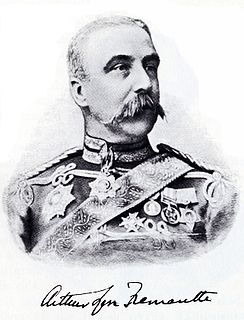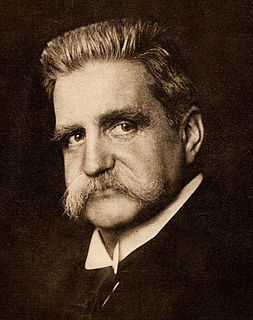A Quote by George Washington
For the sake of humanity it is devoutly to be wished that the manly employment of agriculture and the humanizing benefits of commerce would supersede the waste of war and the rage of conquest; and the swords might be turned into ploughshares, the spears into pruning-hooks, and as the Scripture expresses it, "the nations learn war no more.
Related Quotes
Cannot swords be turned to plowshares? Can we and all nations not live in peace? In our obsession with antagonisms of the moment, we often forget how much unites all the members of humanity. Perhaps we need some outside, universal threat to make us recognize this common bond. I occasionally think how quickly our differences worldwide would vanish if we were facing an alien threat from outside this world. And yet, I ask you, is not an alien force already among us? What could be more alien to the universal aspirations of our peoples than war and the threat of war?
For some reason a nation feels as shy about admitting that it ever went forth to war for the sake of more wealth as a man would about admitting that he had accepted an invitation just for the sake of the food. This is one of humanity's most profound imbecilities, as perhaps the only justification for asking one's fellowmen to endure the horrors of war would be the knowledge that if they did not fight they would starve.
When Isaiah predicted that spears would become pruning hooks, that's a reference to cultivating. Pruning and trimming and growing and paying close attention to the plants and whether they're getting enough water and if their roots are deep enough. Soil under the fingernails, grapes being trampled under bare feet, fingers sticky from handling fresh fruit. It's that green stripe you get around the sole of your shoes when you mow the lawn. Life in the age to come. Earthy.
You point out that war is only a symptom of the whole horrid business of human behavior, and cannot be isolated. And that, even if we abolish war, we shall not abolish hate and greed. So might it have been argued about slave emancipation, that slavery was but one aspect of human disgustingness, and that to abolish it would not end the barbarity that causes it. But did the abolitionists therefore waste their breath? And do we waste ours now in protesting against war?
We ourselves were well conversant with war, murder and everything evil, but all of us throughout the whole wide earth have traded in our weapons of war. We have exchanged our swords for plowshares, our spears for farm tools...now we cultivate the fear of God, justice, kindness, faith, and the expectation of the future given us through the Crucified One....The more we are persecuted and martyred, the more do others in ever increasing numbers become believers.
On healthcare we are the prisoner of our past. The way we got to develop any kind of medical insurance program was during World War II when companies facing shortages of workers began to offer healthcare benefits as an inducement for employment. So from the early 1940s healthcare was seen as a privilege connected to employment. And after the war when soldiers came back and went back into the market there was a lot of competition, because the economy was so heated up.
We are organising our enemies into a formidable force, we are The US public has turned against the war, the Republicans and Democrats have turned against the war. And so when the American public turns against the war and the Congress turns against the war, it suggests that Americans feel we cannot win that war in those conditions. So the Iraqi Commission says, "Well, we can't win this war militarily, we need to reassess potential allies." There's Syria, there's Iran.
It was necessary to put the South at a moral disadvantage by transforming the contest from a war waged against states fighting for their indepdence into a war waged against states fighting for the maintenance and extension of slavery...and the world, it might be hoped, would see it as a moral war, not a political; and the sympathy of nations would begin to run for the North, not for the South.
As we have sought through the centuries to define ourselves as human beings and as nations through the prisms of history and literature, no small part of that effort has drawn us to the subject of war. We might even say that the humanities began with war and from war, and have remained entwined with it ever since.
































